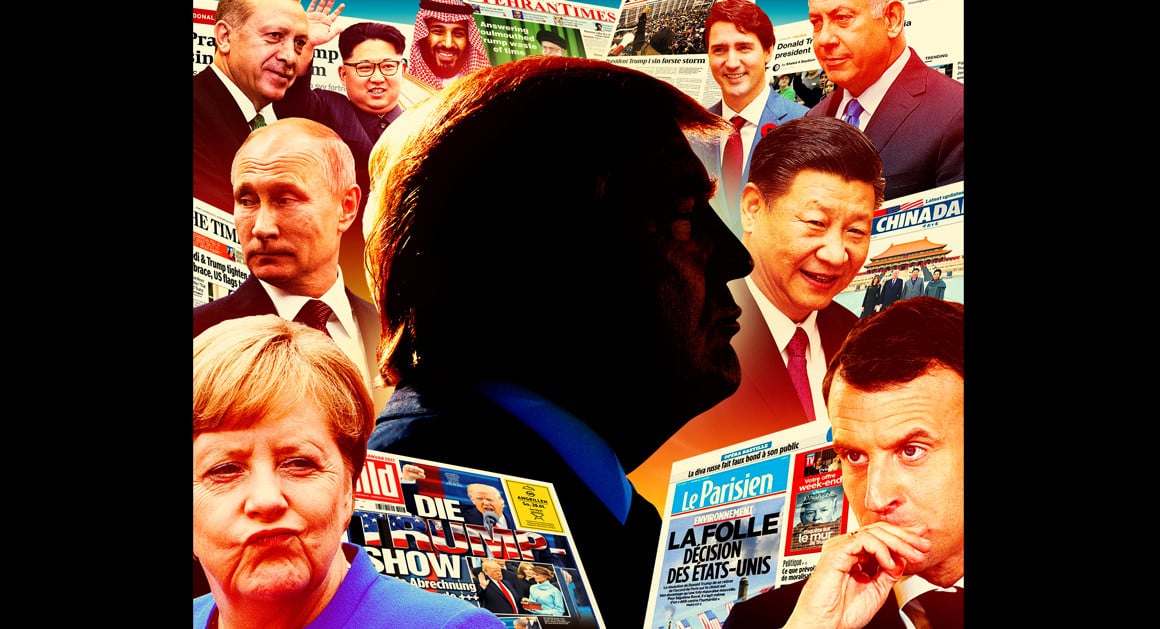January 21st, 2018
For your Bits this weekend we get started by taking a look at the structural challenges faced by millennials in the United States. Millennials have significantly larger student debt burdens and fewer savings opportunities than previous generations and their lifetime has coincided with a generation of policies that funnel profits to executives and capital owners while undermining stable earning opportunities for workers. At the same time, changing regulations have allowed companies to increase “domestic outsourcing” – a practice where firms hire employees like janitors and security guards from third-party companies which reduces the wages and benefits those employees earn. All of these circumstances lead to an employment market where college graduates will take any job that allows them to pay down their student debt making it significantly more difficult for high school graduates to find work. Combine this situation with zoning regulations that keep the housing supply in desirable areas artificially constrained and excessive health insurance costs and millennials have a lot of obstacles in their future. There are concrete policies which could change some of these pressures, but in order for them to take place the various governments throughout the United States need to be organized with an eye toward providing for future generations instead of appeasing politicians’ wealthy benefactors.
Why Millennials Are Facing The Scariest Financial Future Of Any Generation Since The Great Depression

~ 41 Minute Read
“We often think of poverty in America as a pool, a fixed portion of the population that remains destitute for years. In fact, Krishna says, poverty is more like a lake, with streams flowing steadily in and out all the time. “The number of people in danger of becoming poor is far larger than the number of people who are actually poor,” he says.
We’re all living in a state of permanent volatility. Between 1970 and 2002, the probability that a working-age American would unexpectedly lose at least half her family income more than doubled. And the danger is particularly severe for young people. In the 1970s, when the boomers were our age, young workers had a 24 percent chance of falling below the poverty line. By the 1990s, that had risen to 37 percent. And the numbers only seem to be getting worse. From 1979 to 2014, the poverty rate among young workers with only a high school diploma more than tripled, to 22 percent. “Millennials feel like they can lose everything at any time,” Hacker says. “And, increasingly, they can.”
Here’s what that downward slide looks like. Gabriel is 19 years old and lives in a small town in Oregon. He plays the piano and, until recently, was saving up to study music at an arts college. Last summer he was working at a health supplement company. It wasn’t the most glamorous job, lugging boxes and blending ingredients, but he made $12.50 an hour and he hoped he could step up to a better position if he proved himself.
Then his sister got into a car accident, T-boned turning into their driveway. “She couldn’t walk; she couldn’t think,” Gabriel says. His mom wasn’t able to take a day off without risking losing her job, so Gabriel called his boss and left a message saying he had to miss work for a day to get his sister home from the hospital.
The next day, his temp agency called: He was fired. Though Gabriel says no one had told him, the company had a three-strikes policy for unplanned absences. He had already missed one day for a cold and another for a staph infection, so this was it. A former colleague told him that his absences meant he was unlikely to get a job there again.
So now Gabriel works at Taco Time and lives in a trailer with his mom and his sisters. Most of his paycheck goes to gas and groceries because his mom’s income is disappearing into the family’s medical bills. He still wants to go to college. But since he can barely keep his head above water, he’s set his sights on an electrician’s apprenticeship program offered by a local nonprofit. “I don’t understand why it’s so hard to do something with your life,” he tells me.
The answer is brutally simple. In an economy where wages are precarious and the safety net has been hacked into ribbons, one piece of bad luck can easily become a years-long struggle to get back to normal.”
Click To Read The Full Article At HuffingtonPost.com
Sign Up To Receive Weekend Bits In Your Inbox Every Sunday
Our next article takes a look at the Mexican news media and the outsized influence that the government has in controlling it. While ostensibly a free press, the news media in Mexico receives significant funding from the government with political parties spending hundreds of millions of dollars around the country that allows “federal and state officials [to] routinely dictate the news”. This leads to journalists and news organizations censoring themselves by not reporting on particular issues, not following up potential stories that might embarrass the government, or actively publishing stories in favor of the government. Going against the government is dangerous for journalists who not only risk their funding source but also their lives and many feel that going along with the system is the only way to have any sort of independent media at all.
Using Billions in Government Cash, Mexico Controls News Media

~ 17 Minute Read
“The co-opting of the news media is more fundamental than any one administration’s spending on self-promotion, historians say. It reflects the absence of the basic pact that a free press has with its readers in a democracy, where holding the powerful accountable is part of its mission.
“It’s a common problem in the developing world, but the problem is much, much graver in Mexico,” said David Kaye, the United Nations special representative for freedom of expression. “It’s remarkable what the government spends.”
Most news outlets have relied on public advertising for so long that they would not survive without the government, giving officials tremendous leverage to push for certain stories and prevent others, analysts, reporters and media owners say.
“This is an economic problem,” said Carlos Puig, a columnist at the newspaper Milenio, which receives substantial government funding. “The classic American model does not exist here.”
Last year, a public outcry erupted after a top official in the Peña Nieto administration went to Milenio’s offices to complain about a story. The article, criticizing a national anti-hunger initiative, was taken down from the newspaper’s website right after the visit.
The piece later went back up, with a far less damning headline. The newspaper says the reason was simple: The article was “deplorable,” an inaccurate and “vulgar” attempt to smear an official, requiring an apology to readers. But journalists and democracy advocates, citing the power of government advertising, cried foul and the reporter resigned in protest, claiming to have been censored. Eventually, the original headline was restored.
Overt government interference is often unnecessary. Sixty-eight percent of journalists in Mexico said they censored themselves, not only to avoid being killed, but also because of pressure from advertisers and the impact on the company’s bottom line, according to a three-year study by researchers at the Ibero-American University in Mexico City and the University of Miami.
Francisco Pazos did. He worked for years at one of the largest papers in Mexico, Excélsior. One of his most frustrating moments came in late 2013, he said, when the government was in the throes of a fight with commuters over a transit fare increase.
Mr. Pazos said he tried to explore the commuters’ anger in detail, until an editor stopped him, telling him the paper was no longer going to cover the controversy.
“I came to understand there were issues I simply couldn’t cover,” Mr. Pazos said. “And eventually, I stopped looking for those kinds of stories. Eventually, you become a part of the censorship yourself.”
Many media owners and directors say they have so few independent sources of income outside the government that they face a stark choice: wither from a lack of resources, or survive as accomplices to their own manipulation.
“Of course, the use of public money limits freedom of expression, but without this public money there would be no media in Mexico at all,” said Marco Levario, the director of the magazine Etcétera. “We are all complicit in this.”
The model means that some media outlets in Mexico can scarcely afford their own principles. Twenty years ago, the newspaper La Jornada was one of the most beloved in the nation, a critical voice and a must-read for intellectuals and activists who carried the tabloid around town, tucked under their arms.
But the years have not been kind to the paper. A few years ago, it was on the cusp of financial ruin. Then the government intervened, rescuing the publication with more than $1 million in official advertising and, critics say, claiming its editorial independence in the process.
“Now they own them,” Mr. Levario said. “The paper has been like a spokesman for the president.””
Click To Read The Full Article At The New York Times
Sign Up To Receive Weekend Bits In Your Inbox Every Sunday
Your last Bit of the weekend takes a look at the foreign policy and geopolitical implications of the Trump presidency. Entering the presidency with no foreign policy experience, ill-conceived and incoherent policy positions, and an abrasive personality Donald Trump has proceeded to stun and frighten world leaders with the incompetent way he leads the United States. Representatives of Latin American countries recount how they had to convince Trump not to attack Venezuela during a side meeting at the United Nations General Assembly and representatives of European countries share similar stories about Trump’s rants at private dinners. Despite the efforts of some of Trump’s cabinet members and advisors who work to promote a more regular foreign policy, the President has proven himself unable to comprehend or maintain a static position on important issues. His whimsical policy process has allowed countries like China and Saudi Arabia to woo Trump with lavish ceremonies while the United States’ traditional allies are left trying to read between the president’s tweets and predict his next move.
Donald Trump’s Year Of Living Dangerously

~ 29 Minute Read
“So what the hell is going on? I’ve come to believe that when it comes to Trump and the world, it’s not better than you think. It’s worse. The president is not playing the leadership role the rest of the world has come to expect from the United States, and the consequences are piling up. Still, it is also true that the world hasn’t exactly melted down—yet—as a consequence, leading some to conclude that Trump is merely a sort of cartoonishly incompetent front man, a Twitter demagogue whose nuclear-tinged rhetoric and predilection for cozying up to dictators should be discounted in favor of rational analysis of the far more sober-minded, far less radical policies actually put in place by his team.
Call them the Reassurers. Substantively, they make their case more or less like this: Trump hasn’t gotten us into any new wars, and is confronting bad actors in North Korea and Iran with renewed vigor, continuing tough sanctions against Russia despite his public praise of Kremlin strongman Vladimir Putin, dismantling the Islamic State in Iraq and Syria, and forcing European allies to pay more for NATO after years of ineffectual American complaints. “In almost every area, in his own way, with his own rhetoric, he has reasserted American leadership, and he’s willing to confront threats before they gather,” Senator Tom Cotton, the hawkish Republican from Arkansas, who has emerged as a close Trump adviser and outside cheerleader, told me this fall. So, forget what the president says or even much of what he does. Never mind the shadow of the Russia investigation looming over the presidency, or the president’s lavish praise of autocrats and public attacks on longtime U.S. allies. In fact, the view that Trump himself is essentially irrelevant is now advanced privately by some key members of his own team—another extraordinary commentary on an extraordinary presidency. (The White House did not comment for this article.)
There’s something surreal about the Reassurers’ argument, because it ignores a harder-to-digest reality: One year in, Trump’s much-vaunted national security team has not managed to tame the president or bring him around to their view of America’s leadership role in the world. Instead, it’s a group plagued by insecurity and infighting, publicly undercut by the president and privately often overruled by him. Tillerson, the former CEO of ExxonMobil, is regularly reported by White House sources to be on his way out, with his demoralized, depleted State Department in outright rebellion. Meanwhile, the brawny military troika of White House chief of staff John Kelly, a retired four-star Marine general; Defense Secretary James Mattis, another retired four-star Marine general; and national security adviser H.R. McMaster, a serving Army three-star general, has managed to stop the chaos of the administration’s early days while crafting a national security policy that gets more or less solid marks from establishment types in both parties. The problem is, no one’s sure Trump agrees with it.
There’s plenty of evidence, in fact, to show that he does not. On Russia, the Trump team increasingly talks tough about Putin, but sanctions remain in place despite, not because of, the White House, and sources tell me Trump personally is not on board with many of the more hawkish measures his team proposes to counter Putin, a fact underscored by his eyebrow-raising signing statement in December objecting to several tough-on-Russia provisions in a defense bill. On Afghanistan, it took the national security team months to persuade Trump to keep U.S. troops there, even after they warned of the Afghan government’s dangerous collapse if they did not. Meantime, the president has disregarded their united recommendation on other issues as consequential as refusing to certify Iranian compliance with the nuclear deal and, in December, overturning decades of U.S. policy in deciding to unilaterally recognize Jerusalem as Israel’s capital (Mattis and Tillerson “begged” Trump not to do it, a well-placed source who spoke with both men told me). The new National Security Strategy that McMaster began rolling out to the rest of the Trump administration in December hits uncontroversial themes like defending the U.S. homeland and organizing to counter rising “revisionist” powers like China and Russia. The language of “principled realism” put forward by McMaster is so un-Trumpian that a top adviser who received a copy told a reporter it was simply “divorced from the reality” of the Trump presidency. “It’s the first time, maybe in history, key advisers have gone into the administration to stop the president, not to enable him,” says Thomas Wright, a Brookings scholar who has emerged as one of the most insightful analysts of Trump’s foreign policy.
Not only that, but it’s clear by now that Trump’s tweeting, boorishly undiplomatic behavior and preference for policy by fiat have actually had real-world consequences, whether Trump has been undercutting diplomacy with North Korea while publicly rebuking his secretary of state, refusing to take action to counter Russian hacking or placing the U.S. firmly on one side in a dispute among Gulf Arabs. An out-of-nowhere blast at Sweden and its supposed problem of Muslim immigrants run amok had that country’s commentariat amazed and appalled. “They thought the man had gone bananas,” former Swedish Prime Minister Carl Bildt told me when we talked last spring.”
Click To Read The Full Article At Politico.com
Thanks for checking out the Weekend Bits! If you enjoyed these Bits, why don’t you share it with a friend? We appreciate your support and as always, Contact Us online or send us an email at [email protected].
Have a great rest of your week!